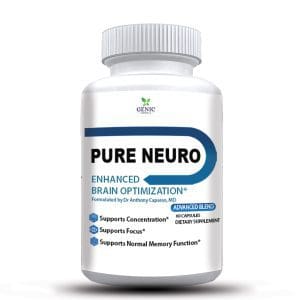Full Disclosure: Clicking on these links could mean a tiny commission for me, at no extra cost to you.
Taking care of our elderly loved ones should always be a key focus for those within the aged care industry, especially when it comes to providing individualised mental health support. This is because ageing comes with unique forms of challenges that require empathetic and professional support to guarantee their overall well-being and quality of life. This blog post will explore six key tips to supporting elderly mental health as they transition into a new living space.

1. Foster Meaningful Social Connections
The first step to supporting elderly mental health is acknowledging the serious impact loneliness and isolation can have on seniors. Physical and cognitive conditions that the elderly face can cause them to feel separated from others and alone in their daily lives. That is why it is essential to foster meaningful social connections in their lives. Particularly when they are living away from family in aged care facilities, as it creates a strong sense of belonging and joy that combats the isolation that may arise from a new environment.
These connections can be formulated in similar ways, regardless of whether the elderly individual in question is living at home or at a facility. Providing opportunities for group activities has been identified as one of the best means of supporting elderly mental health, such as regular exercise classes, communal meals, and even hobby meetings. Such events create opportunities for residents to interact with each other and build relationships that keep them from feeling isolated.
On top of this, technology can also be utilised to maintain connections with family and friends outside of their new home, whether they’re living in a facility like Kew Gardens aged care facility, or moving into a loved one’s home Social media, video calls and regularly scheduled emails can keep residents and loved ones in constant contact, supporting the former and brightening up their lives.
2. Create a Stimulating Environment
A stagnant environment can lead to a decline in mental well-being, which is why it is so vital for homes and aged care facilities alike to create spaces that physically and mentally engage elderly residents. Common means of accomplishing this include open gardens, art and music therapy programs, and even sensory rooms that facilitate various cognitive and physical conditions. Residents of aged care facilities that regularly use these spaces can enjoy enhancement to their cognitive functions, but also a greater sense of happiness and accomplishment. It may be slightly more difficult to set up these environments at home, but involving family and friends can speed the process along.
Exercise and regular outdoor activities can also have positive effects on elderly mental well-being. Scheduling events such as nature walks or days spent gardening can expose seniors to natural light and fresh air. This, in turn, boosts serotonin levels and contributes to a more positive and uplifting atmosphere within the facility.
3. Encourage Individualised Care Plans
It is important above all else to acknowledge that every elderly individual is unique. Thus, their needs and preferences are also unique, especially when it comes to maintaining their mental well-being. Formulating individualised care plans in facilities can help address the specific mental health requirements of each aged care resident, ensuring that their health is put first. This can be done through regular assessments and personal discussions, which can include residents’ families to help identify personal interests, preferences, and any concerns that need attention.
For elderly individuals still living at home, carers can confer with mental health or aged care specialists to come up with their own care plan. Having professional guidance is crucial to ensure that all of the needs of an elderly individual are met.
Additionally, individualised care plans ensure that seniors feel valued and respected as they have a voice in their care. Customised approaches can also be applied across all areas of care, such as dietary requirements, personalised leisure activities, or even social interactions.
4. Provide Access to Mental Health Services
Although it is crucial to focus on creating a supportive environment within homes or aged care facilities, it is just as necessary to offer easy access to professional mental health services. Elderly individuals face many challenges associated with ageing that can impact their mental health. However, they may feel unsure or ashamed of seeking out the necessary support for overcoming these bouts of anxiety or depression.
While there are plenty of strategies and methods that seniors can utilise from online or shared personal resources, professional assistance is one of the most effective means of supporting their mental health. These trained professionals can incorporate mental health screenings into daily care and ensure all seniors have access to counselling services. In turn, this helps to identify and address mental health issues promptly, providing timely interventions and support for those who may be struggling.
5. Prioritise Staff Training and Support
The quality of care applied to elderly individuals can affect their mental health by tremendous degrees, especially when it is offered every day in aged care facilities. That is why it is so vital that all residential staff are trained extensively on empathy, communication skills, and identifying each individual’s unique needs. When there are well-trained and empathetic staff in a facility, the environment is more likely to be positive and nurturing for residents.
6. Encourage Physical Activity
It is understood that physical health and mental well-being are closely connected. When an individual regularly exercises or performs a form of physical activity, their mood and cognitive function are shown to be greatly improved, along with their stress levels being reduced. To motivate elderly individuals to be involved, it is best to tailor physical programs to individual abilities and preferences.
Incorporating activities such as yoga, chair exercises, or daily walks into seniors’ lifestyles provides them with opportunities to get fresh air and exert themselves comfortably. Particularly as these exercises can be tailored to accommodate various levels of mobility. Over time, these physical activities can not only contribute to better mental health but also help in maintaining overall physical health and preventing age-related conditions.
7. Consider Cognitive Support
Pure Neuro is a dietary supplement created by esteemed neuroscientist Dr. Anthony Capasso. It takes a comprehensive approach to cognitive enhancement, addressing various aspects of brain function to nurture your loved one’s memory, focus, and overall cognitive well-being. Here are some additional benefits it offers:
- Enhanced cognitive function: Enjoy improvements in memory, focus, and mental clarity.
- Guard against cognitive decline: Pure Neuro provides neuroprotection, shielding against oxidative stress and age-related cognitive decline.
- Balance mood: Benefit from mood stabilization properties, potentially alleviating stress and anxiety.
- Increase mental energy: Experience heightened mental energy and productivity throughout the day.
- Embrace healthy aging: Pure Neuro supports healthy aging and longevity, ensuring your loved one’s continued fulfillment.
Made with all-natural ingredients backed by scientific evidence and research, Pure Neuro is a valuable addition to any senior mental health routine.
To learn more, visit the official Pure Neuro website here.
Conclusion
Supporting elderly mental health requires a combination of thoughtful practices, individualised care, and professional support. However, this support is more than feasible when households or facilities ensure that they are prioritising individual care plans, creating stimulating environments, and fostering meaningful connections amongst other techniques. Investing in seniors’ mental health guarantees not only their well-being, but also that they can enjoy a fulfilling and dignified life in their later years. So, whether they’re moving to a facility offered by services like Arizona long term care or downgrading into a smaller home, these tips can help keep they mental health optimal.









